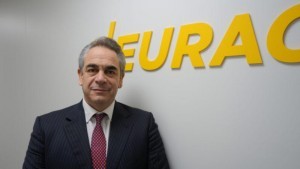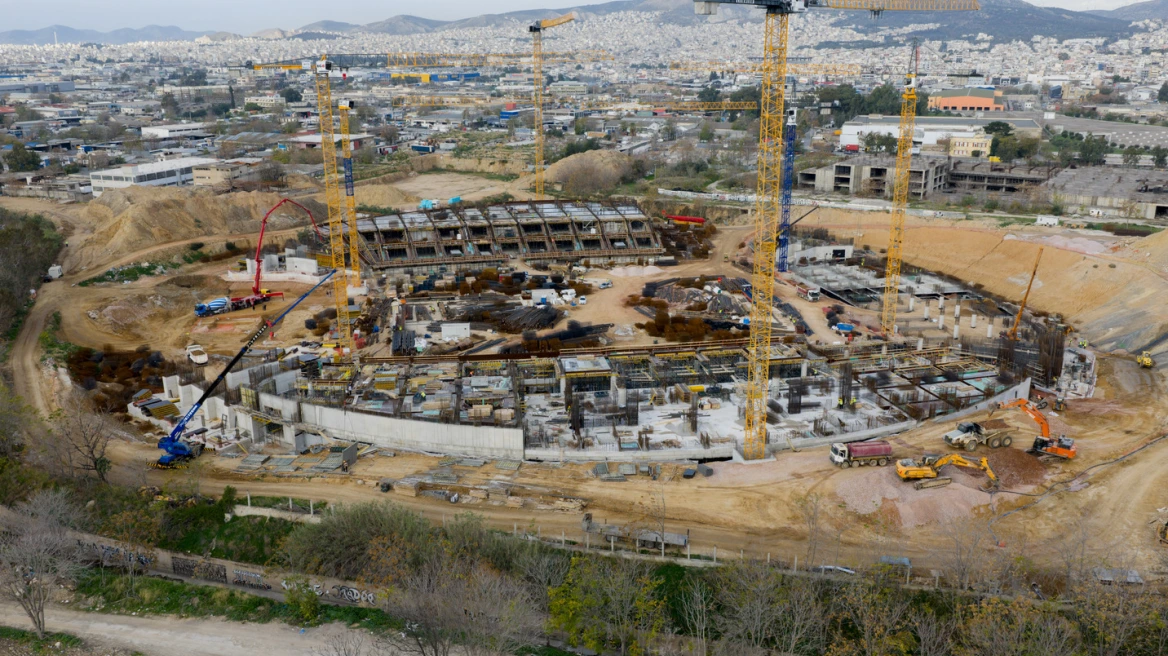Greece is politically and economically stable and now it’s the time for productive investment that will create jobs and increase the country’s GDP, Greek business leader Konstantinos Michalos told EURACTIV.com in an interview.
The second assessment of the Greek bailout was successfully concluded and there are positive signs about the third one. How do you see the future of the Greek economy?
As you rightly said, despite the fact that the second evaluation was late, we welcomed the fact that it was completed. Immediately after the conclusion of the evaluation, we saw a return to stability in the Greek economy, which was reflected both on the financial markets and in general on the country’s economic situation.
We have noticed that in the first ten months of 2017 the indicators of the economy are positive for the country, even a timid rise in the industrial production index that is extremely positive. What we need to realise is that if there is no productive reshuffle of the economy. What we all basically want, which is a return to growth, this is not going to happen. The country cannot remain in this position that it has been in for a very long time in the past years.
In order to attract productive investment, a climate of stability is needed. Today, there is this climate. I hope that the third evaluation – which I find difficult for the political decisions to be made, but easier because there are no budgetary measures at all – will be concluded soon. In this sense, I think it should be closed by the end of the year. Based on the information I have so far, by the middle until the end of December it will be concluded and this will really be excellent news.
On a macroeconomic level there is progress. On a microeconomic level, there is always a period of time needed for the transition of the benefits gained at the macroeconomic level. If the structural reforms go ahead, because this is the third assessment, I think we will soon return to a good level.
You talked about economic stability. How can this be the case, considering that the opposition has been asking for early elections?
Considering their current rhetoric, we see that the major opposition party and the other political parties do not come back to the issue of the snap elections, which was topping their agenda a year ago. This is because, since it did not materialise at the time of this political push, I think it has now lost its meaning.
What the Greek economy and society at large need today is to maintain the climate of stability, to call on the political parties to some extent to converge at least on the course of the economy. This consensus and cooperation are required when facing a national crisis, not an ideological-political one, so we can get out of this tunnel.
Political stability is currently in place in the country and, apparently, the government will be consistent with this considering that it has stated from the very beginning that it may be the only post-junta (Metapolitefsi is the period in modern Greek history after the fall of the military junta) government that will complete its four-year parliamentary term. The elections will be an issue to be discussed in 2019.
How could the new government in Berlin affect the Greek bailout programme?
You are aware of what has been said for Wolfgang Schäuble. We have reached the point today to say that Mr Schäuble would have been better if he had remained as a Finance Minister regarding the Greek case. I think not even the Germans know what the outcome of these consultations will be in order to form a new government. The term Jamaica can remain a term that describes this island and not the wider alliance that Ms Merkel might hope for.
We still do not know whether Ms Merkel will remain as a Chancellor. And this is important because this was an element of stability between the two countries. Both Mr Schäuble’s transition to another role and the possible non-presence of Ms Merkel in the chancellery will create more problems for our country.
What is your stance regarding Brexit? How could it disrupt EU business?
A difficult situation has been created and I think both sides are in uncharted waters.
What the European business sector wants and will fight for is for trade relations between the UK and the EU or the UK and individual EU countries to be guaranteed. The new relationship should facilitate trade and entrepreneurship in general.
Because otherwise, if one listens to the bureaucrats in Brussels we will end up with a negative future for the British economy and this will not benefit anyone. What we need is to have a sense of sobriety, to find a level of cooperation, because we are not talking about a small country but a global economic leader and a solution should be found as soon as possible.
With regard to Greek businesses and the transactions we have with the British business sector, I think that the relations that have been existed over the years will not be easily disrupted and I am sure that even the Greek business venture, despite any final decisions at European level, will find these solutions that will ensure a calm flow of transactions.
Are the Europeans reluctant to see Greece seeking investment from third countries around the world?
I do not think there is any reluctance, at least at this stage, because there may be some Europeans who do not believe that this endeavor will be fleshed out. I personally believe it because I experience it quite closely. And I do not hide that it is a very positive development that the Greek government has come into contact with various economic powers around the world.
I would say that the last visit of Greek Prime Minister Alexis Tsipras to the United States makes me optimistic because we will very soon accept in Greece a delegation of big American companies, most of which are oriented towards productive investment. Investments from China are good, at an infrastructure level, we have seen and discussed the investment in the port of Piraeus by Cosco at the time of Kostas Karamanlis’ governance, but there are also questions about the amount of jobs that these investments create or will create in the near future.
What we need is production, and what I know is that the US businesses that are thinking about investing in Greece will bring added value to the country’s GDP and, most importantly, will provide jobs.
Today, despite the government’s sincere efforts to reduce the unemployment rate from 27.3% to 21.3%, it remains a poor record at EU level, mainly for youth unemployment, which remains high. We must stop the brain drain that our country has suffered in recent years. I sometimes wonder about this new wave of investment we hope for, who will create it when we have lost 400,000 young people mostly of university level to other European countries?
We need a tax regime that is competitive, which I hope the government will realise is decisive, that the procedures and bureaucracy should be reduced to a minimum, and finally, to look at the issue of insurance contributions for each investor, domestic or foreign.
* Konstantinos Michalos is the President of the Athens Chamber of Commerce and Industry and head of the Association of European Chambers of Commerce and Industry (Eurochambres).
Source: euractiv.com
Ask me anything
Explore related questions





